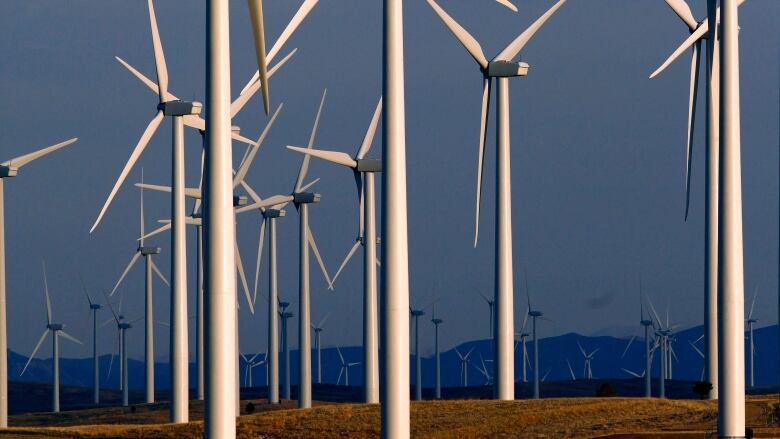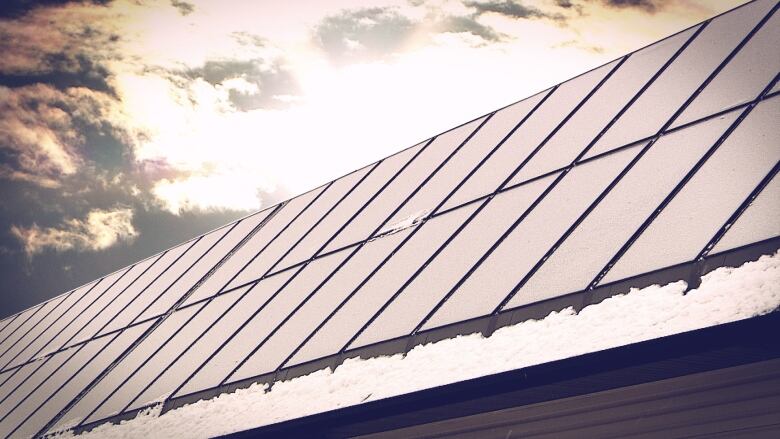Why we need a green industrial revolution: Bob McDonald
Investment in a cleaner future can have benefits down the road

Scientists are breathing a sigh of relief afterthis week'sannouncement of the new federal budget, which has increased funding for scientific research and improvements to scientific laboratories, as well as providing stimulus funding for a greener economy. But as a green industrial revolutionbegins, each of us has to do our part by investing in it.
The idea of transitioning away from fossil fuels is usually met with the fear that it will cripple the economy.
But green technology is expanding some reports have suggestedat a faster pacethan any other sector of the Canadian economy and if we support related industries in Canada, it couldgrow the way the fossil fuel industry did, with new jobs and skill sets.
- Liberals keep most of their green election promises in 1st budget
- Oilpatch pains prompt Liberals to postpone cutting fossil fuel subsidies
- Journey to the Future author explores Vancouver's fictional green future
According to the City of Toronto, more than 36,000 people are employed in more than 1,700 Toronto-area companies that provide alternative energy and "cleantech" products and services across a wide range of sub-sectors.
Vancouver is following an initiative called theGreenest City 2020Action Planto make it the greenest city in the world by 2020.
The Canada Green Building Council reports that the green building sector drove $23.45 billion in GDP, representing 297,890 jobs across the country in 2014.It is expected to double its growth by 2018.
A think-tank group called Smart Prosperityhas outlined a roadmap for Canada's green future in itsReport on New Thinking.They're advocating "innovative, clean businesses that generate the jobs of the future."

These are all positive signs that investing in green can provide a good return, while moving us towards the goal of reducing greenhouse gas emissions. It demonstrates that making the transition away from fossil fuels does not have to cripple the economy.
But there is still much to do.
Scientists will continue to monitor the changes to the environment, which will provide incentive to move forward to a new green revolution.
At the moment, green energy is still a fringe component of our energy supply, with wind accounting for only 3.5 per cent of our energyand biomass providing a mere 1.4 per cent.
No single alternative energy source will meet all our needs. We have been spoiled with the incredible energy density of fossil fuels, which has made them so versatile. In the future, we will need a mix of sources, on both large and small scales, to keep up with our ever increasing demand.
Going green also involves social change, where we look at how efficient we are at using energy to cut down on waste and then embrace the new way of doing things.
Do some more research
Often, when a community does decide to install alternative energy projects, such as wind farms, it ismet with public resistance because the wind turbines are deemed unsightly.Rooftop solar panels are perceived as expensive, but their costs are coming down, and will continue to do soas more people adopt them.
Research is needed to develop new ways to store energyso the lights stay on whenthe wind doesn't blow and the sun doesn't shine. Materials scientists and engineers need to improve batteriesso they can hold more charge, take less time to rechargeand do it at low cost.
And finally, the federal budget makes no mention of reducing the subsidies to fossil fuels. It's harder to transition to cleaner green technology when we are still supporting the dirty old one.
Scientific research and new technologies are only part of the picture. Ultimately, we, the public, have to buy into that technology the way we embraced fossil fuels in the past.
Yes, it is going to cost more at first. But it's an investment in a cleaner future that will pay off for all of us in the end.












_(720p).jpg)


 OFFICIAL HD MUSIC VIDEO.jpg)
.jpg)



























































































